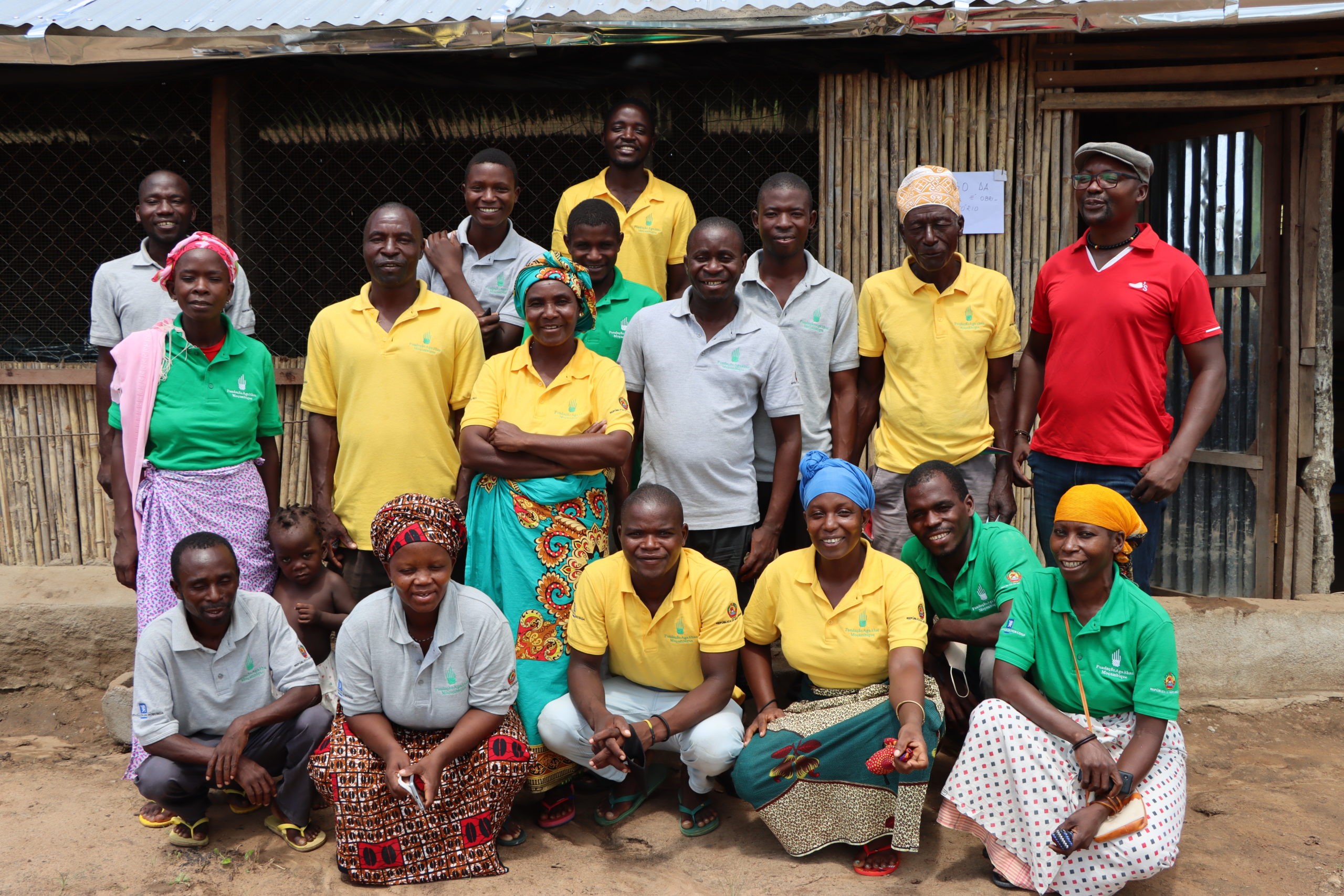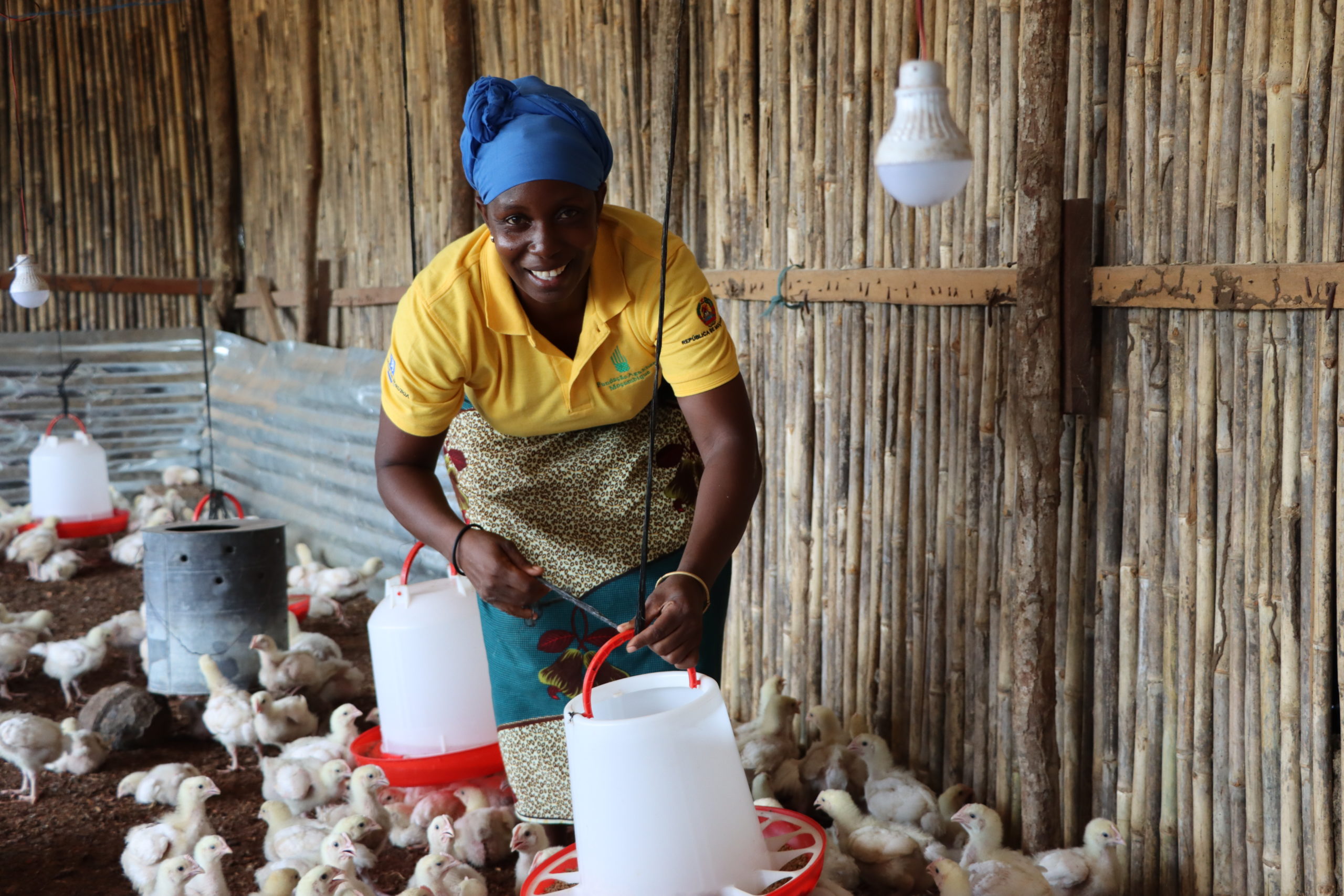Since 2017, more than 700,000 people in the northern Mozambique province of Cabo Delgado have been forced from their homes due to conflict. Many found shelter with relatives and friends or on temporary land loaned by others leaving their land and belongings behind. Given most people are smallholder farmers, this has created devastating disruption to the supply of food and income for many.
For the past five years, Cabo Delgado has been the ground of several terrorist attacks and armed disruption. It started as a series of random attacks perpetrated by non-state armed groups, but rapidly gained scale in the most northern districts of the province. Hundreds of thousands of lives have been affected, resulting in a humanitarian crisis across the province, as well as affecting the neighbouring provinces.
Despite the conflict, the Aga Khan Foundation remained in Cabo Delgado, continuing to support those most in need including Internally Displaced Persons (IDPs) and host communities. To better and accurately identify the most urgent needs, AKF is working closely with 40 Village Development Organisations (VDOs) to strengthen social cohesion and identify their needs. Priorities include providing safe spaces with access to basic services such as healthcare and education, supporting sustainable income generation activities, ensuring women and girls have sanitary hygiene kits and building resilience to radicalisation with a stronger focus on the youth.
New income opportunities are identified by the communities themselves, with guidance and support from AKF’s technical teams; one activity that has seen great success is poultry farming. To develop this, AKF has been working with the Agrarian Institute of Bilibiza (IABil) Ocua Campus (Chiure district) with support from the Royal Norwegian Embassy in Mozambique.
Together, IABil and AKF are supporting communities in Cabo Delgado to form poultry associations. Once formed, the associations source locally accessible materials – such as bamboo, grass, and stakes – for the construction of micro-aviaries. AKF and IABil then provide specific training in key skills, such as poultry health, aviary management, and marketing, to get the aviaries successfully set up. The opportunity to learn new skills and generate an alternative income has proven popular with many IDPs.
“I joined the group for the opportunity to learn about raising and selling chickens. Today I can do it, even alone, and be able to generate income for myself and my family.”
Ernestina Constância (header photo), poultry farmer

In one of the poultry associations – formed by 16 IDPs – members received a batch of 450 chickens to kickstart their business. Through the training and mentorship provided by IABIL and AKF project team members, the association was able to quickly sell the chickens for a profit, which they reinvested into their business by buying an additional 150 chicks, increasing their livestock to 600 birds in total. Many of the association members have lived hand to mouth for most of their lives, only growing crops and keeping livestock to feed their own families; this has been their first experience of generating income outside of their subsistence farming practices.
In addition to helping create new livelihood opportunities, the associations have offered a safe space for people – both host community members and IDPs – to come together, connect, and begin to heal after months of trauma and uncertainty.
According to Helena Fernando Evaristo (photo below), poultry farming keeps her busy, and through the association, “there are people to talk to. I no longer feel so isolated thinking about the past and the things I lost where I came from. When I return to my district, I will be able to continue this as a business or work for anyone who has an aviary.”

This initiative is one of many ways in which AKF is supporting around 15,000 community members including IDPs in Cabo Delgado to ensure food security, develop new ways of generating income, and better withstand the shocks that the future may have in store.
The Government of Mozambique and AKF have a management agreement together to support the upgrading of the Agrarian Institute of Bilibiza. The partnership aims to strengthen the agricultural sector through training medium-level technicians and entrepreneurs in Cabo Delgado Province. This initiative also improves experiential learning for students and involves them in community engagement, giving them experience in institutional management, land development and sustainable land management, all useful for their careers.
This partnership initially started at IABil´s original campus based in Quissanga district. Following the attack and destruction of the campus in early 2020, staff and students were relocated to a school in Ocua, Chiure district, currently operating as a temporary campus for the school.
This article was written by Safira Chirindza, Communication Assistant at AKF Mozambique.
With thanks to the Royal Norwegian Embassy in Mozambique for its support of this initiative.





